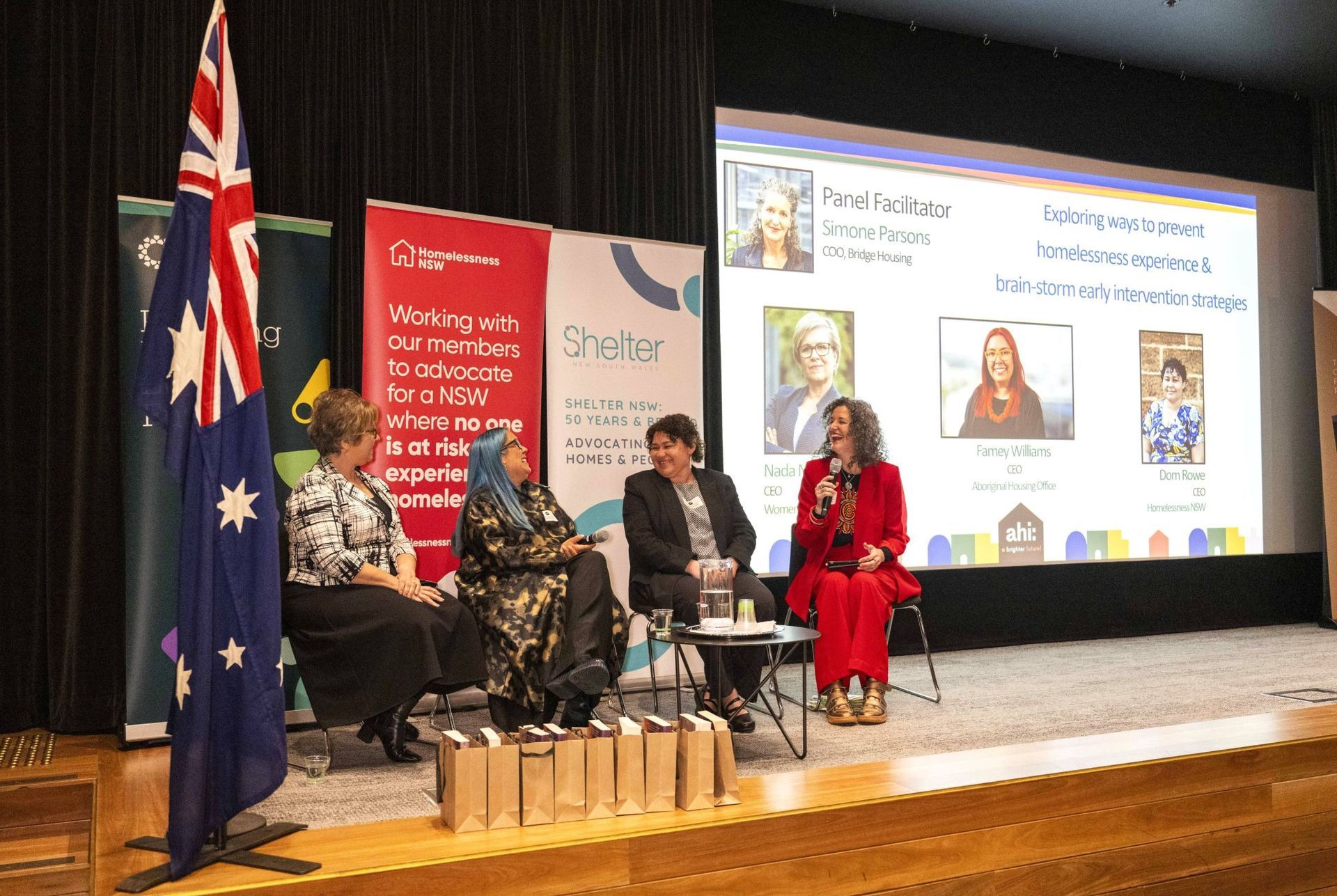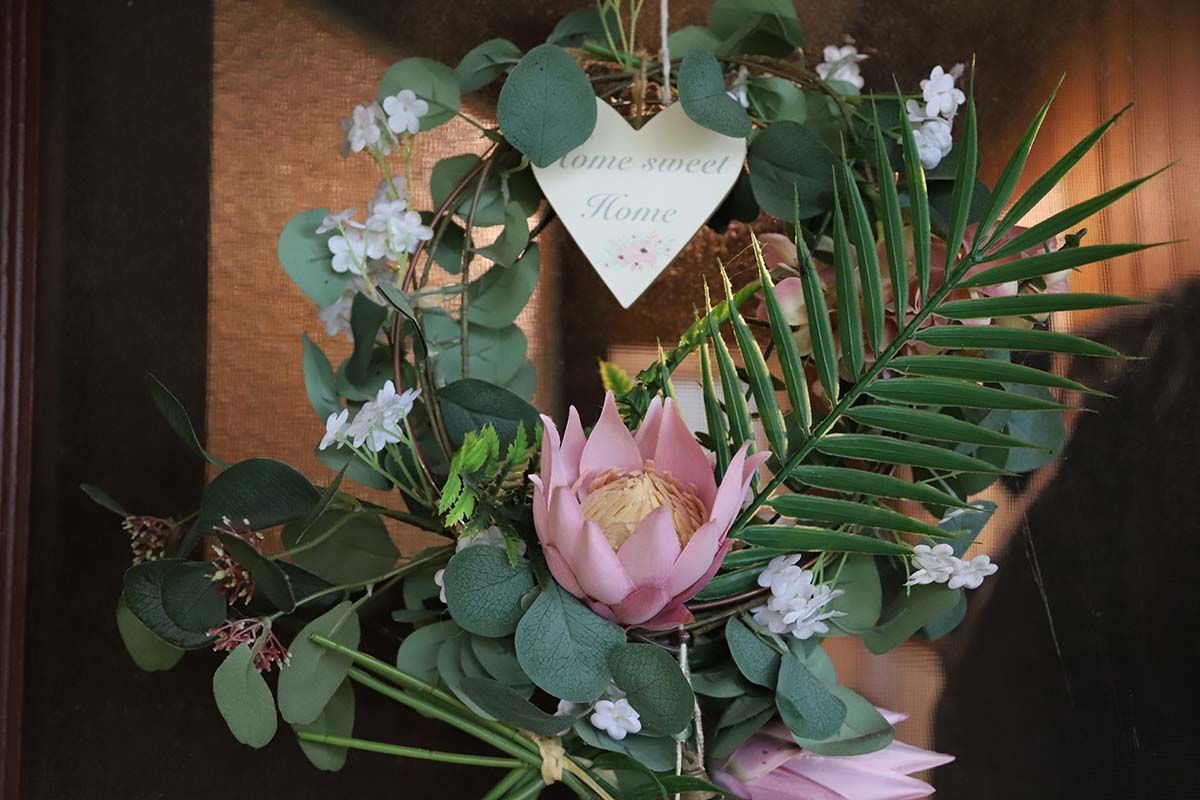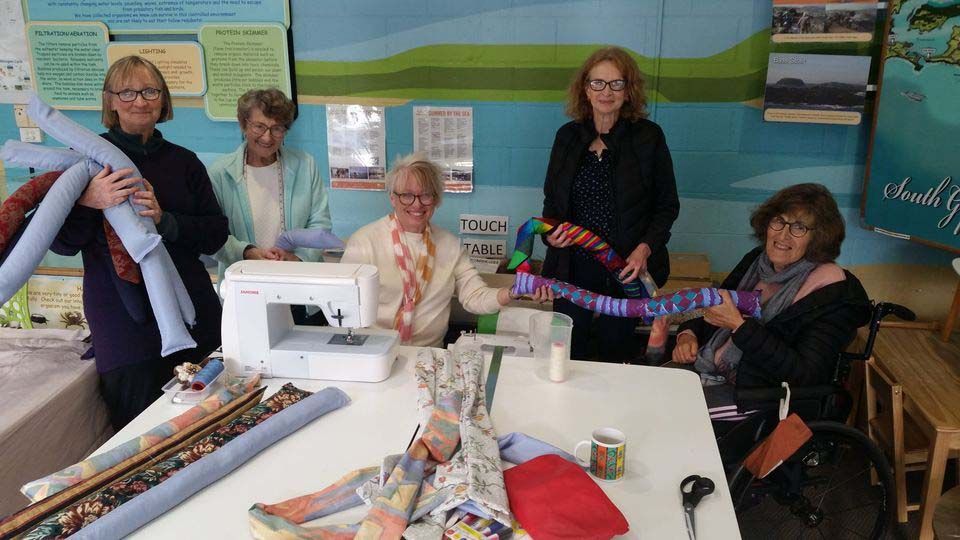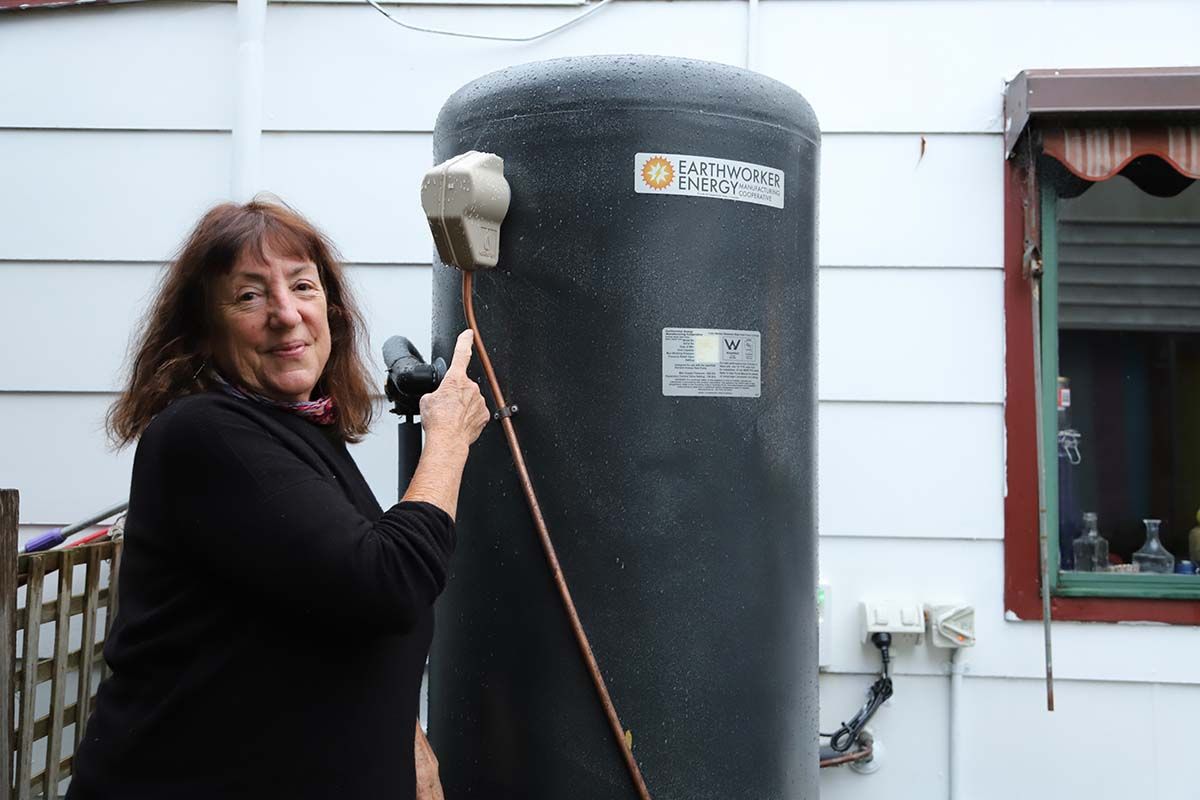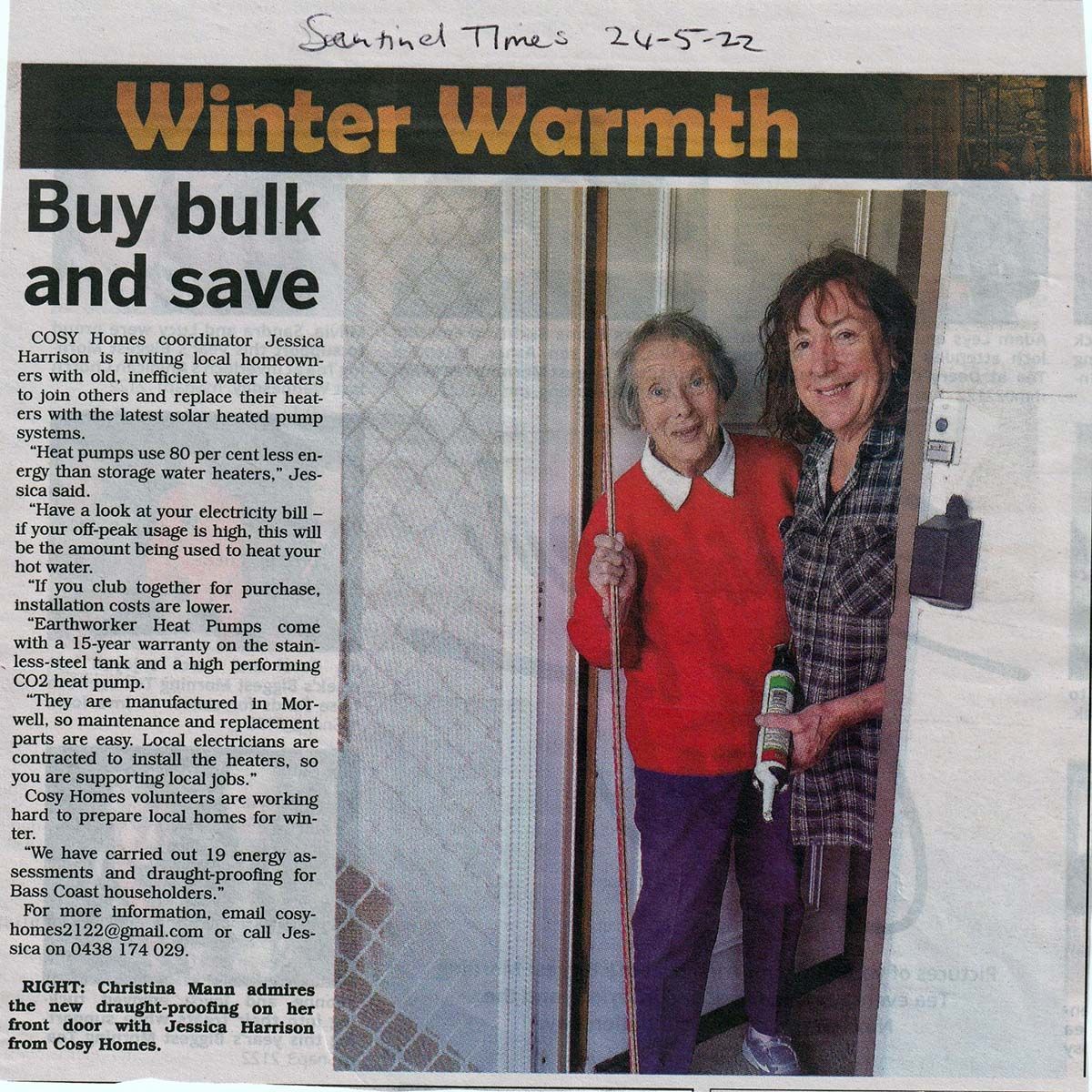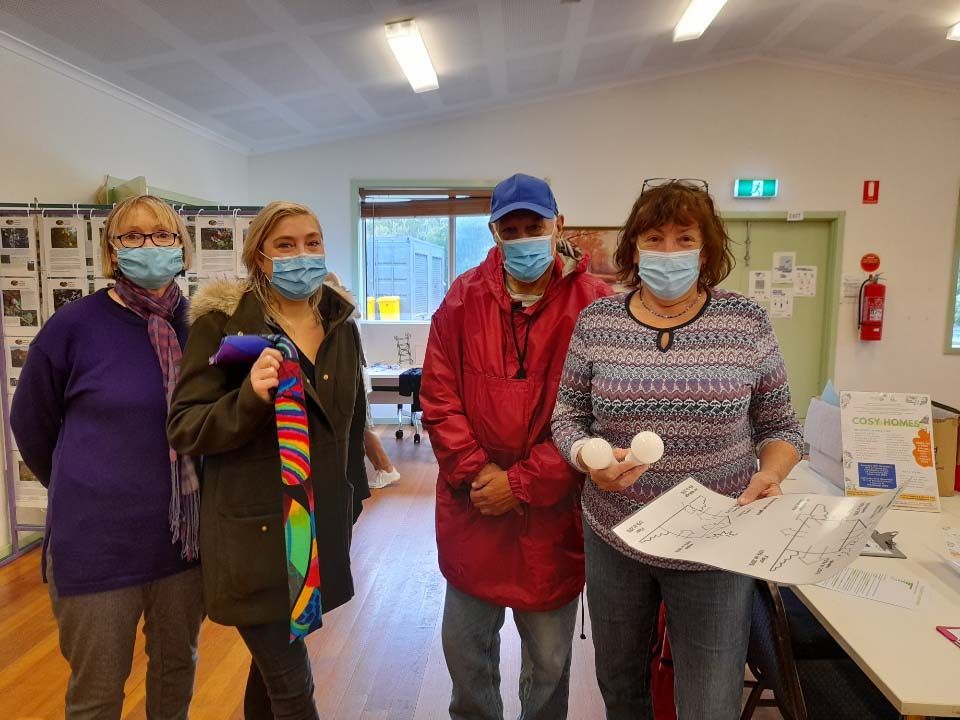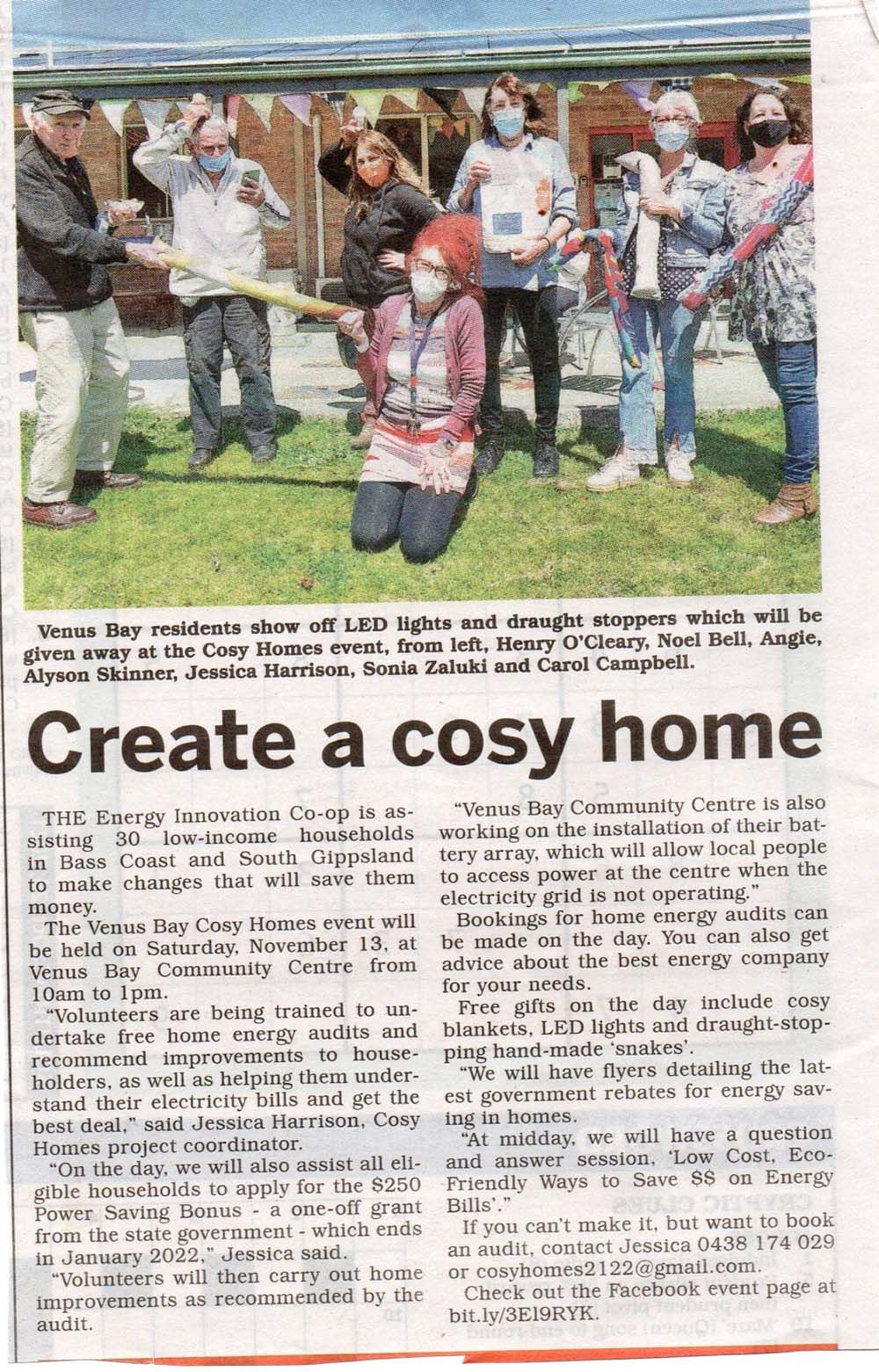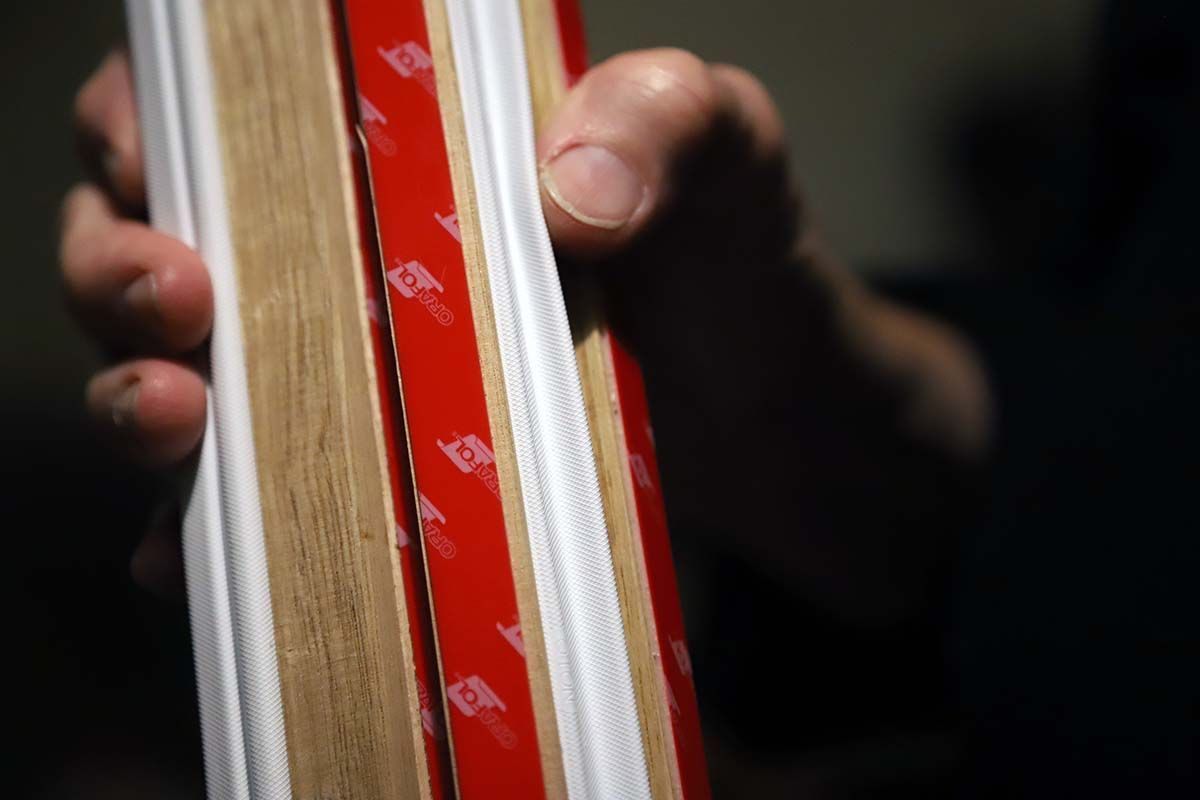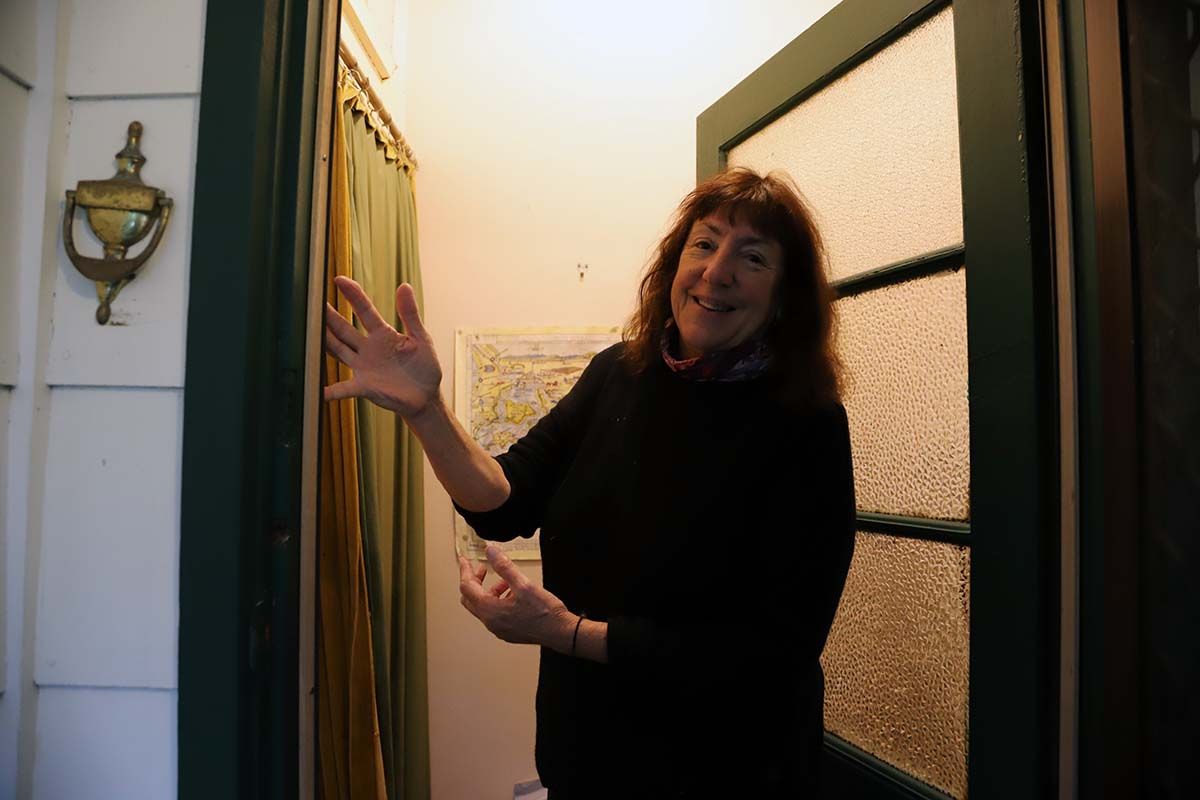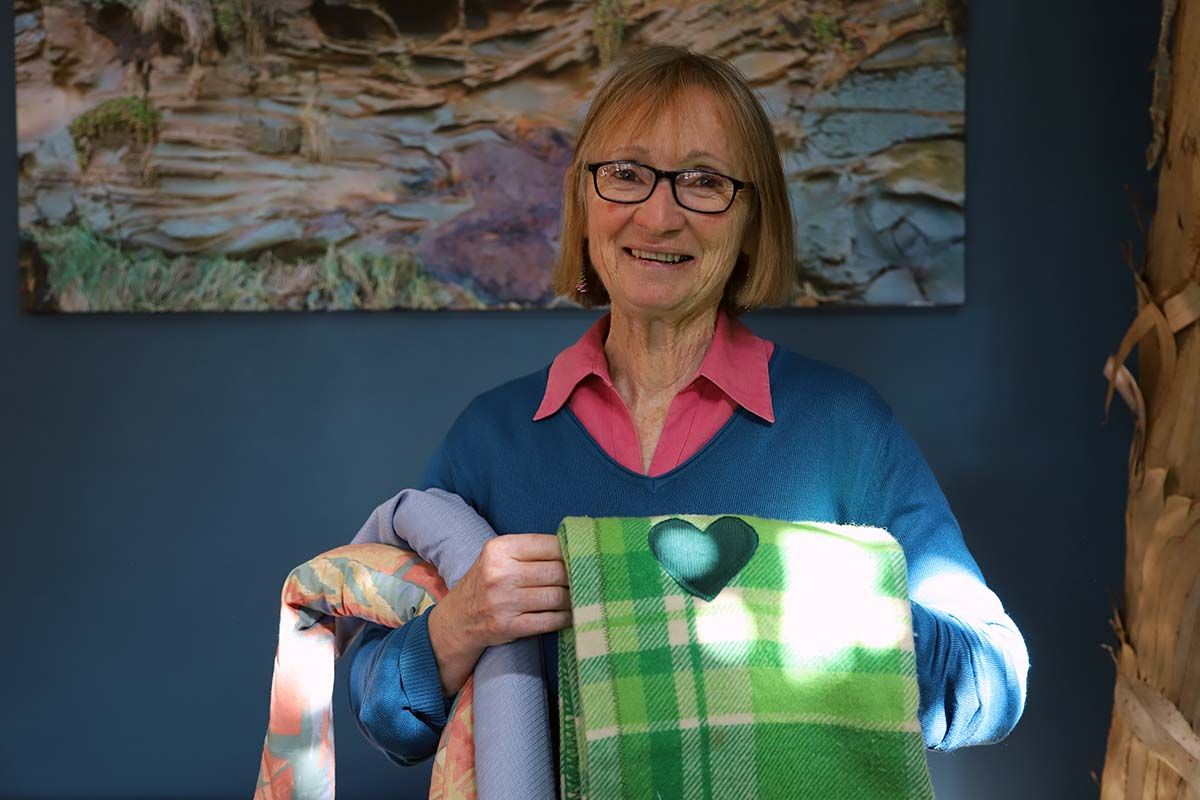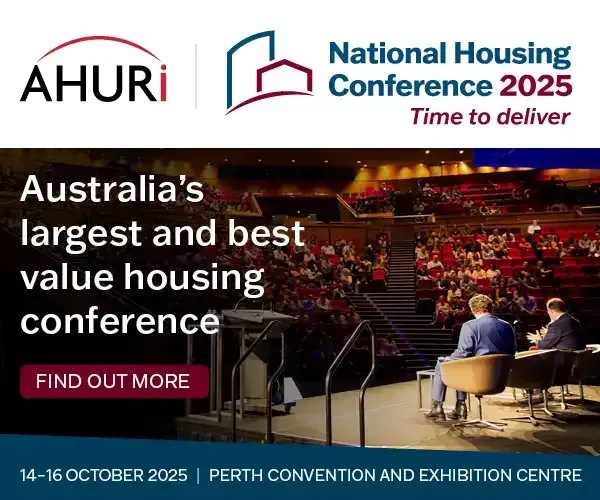Energy Innovation Co-operative in South Gippsland, Victoria, very kindly granted HousingWORKS permission to reproduce their first Bright Sparks – Community Energy Podcast about the Cosy Homes project. Hear and read all about it.
Made possible by a Healthy Homes grant under the State Government’s Regional Climate Change Adaptation Strategy 2021-2022, Energy Innovation Co-operative’s Cosy Homes project took on an ambitious grassroots challenge:
“To make 30 homes in the local area more energy-efficient and cosy for winter by sealing doors, windows and other draughty areas, as well as ‘valve cosies’ which cut down on heat loss from electrical storage tank release valves,” as their website states.
Listen to the project’s founders, Jessica Harrison and Aileen Vening, among others, as they run through the details of Cosy Homes in the podcast embed below.
You can also share in their resources:
PODCAST TRANSCRIPT
Podcast Host:
“When you think about a cosy home, your first thought probably isn't related to climate, energy ratings, carbon emissions, appliance efficiency, electricity bills, or money. But once you break away from the poetic concept of a cosy home and think about the real-life factors that come into play to make that space a reality, you can see that all those things are intrinsically linked.”
“Many houses in Australia, especially older houses, were not designed with climate in mind. They're not energy-efficient and lack proper insulation, getting too cold in the winter and too hot in the summer. Some houses are built on stilts with ill-fitting doors and windows, allowing draughts to blow right through. Some houses have inadequate window coverings and lack outside shade sources like trees, which leaves them at the mercy of weather.”
“Living in a draughty house is not only uncomfortable; it also costs money. The people who suffer the most are renters and people with low socio-economic status. With the climate emergency well underway, it's important we learn what we can do for ourselves and our community to ensure we can all have a cosy home and help the environment at the same time.”
“Jessica Harrison and Aileen Vening are the founders of Cosy Homes. Cosy Homes is a community project to support householders with simple ways to make their homes more energy-efficient, comfortable and cosy, as well as reducing their energy costs. Jessica and Aileen are both passionate about climate action and have been involved in many environmental groups over the years including the Bass Coast Climate Action Network.”
Jessica Harrison:
“My name's Jessica Harrison. I've been living in this area for 20 years nearly. And how I'm tied in with Cosy Homes is basically Aileen and I invented the idea of Cosy Homes. So, we decided that we wanted to reach out to people who hadn't really had any contact before with the ideas of sustainability and didn't really have it in their worldview, particularly reducing their emissions, saving money and, of course climate, change.
“When I was living in England, I was squatting actually, and a lot of the women were getting into manual trades because we didn't really want to get patronised by men opening up squats. And so, I trained as an electrician, so I did a four-year apprenticeship. And so then, I became an electrician. And then, when I was an electrician in Melbourne, I worked a lot for women who didn't particularly want, again, to do with trust, really to do with trusting a male tradie in their place, and I worked around women's refuges.”
“So yeah, that was my background, but pretty much because I got older and started doing other things, activism is probably my main activity. And so, I used to fit in being an electrician around being an activist. Well, when I first came here, we just started up a little group called the Sustainability Education Group. So that was just, again, trying to reach out to people about ways you can save energy and, of course, bearing the planet in mind and climate change. And then, I suppose, then I was part of some people who started a community garden. Again, it was with the idea that if you grow local food, you lessen your impacts on the planet. And so, I'm still helping coordinate that now. That has been a big part of my activity. But then probably, in the last four years, we started a group called Bass Coast Climate Action Network, and that sort of inspired us to take on pressuring the local council to declare a climate emergency.”
“So that was our main project, and I actually didn't know if they would, but in the end they did. We've got very sympathetic people on our local council who really support us. They've really supported Cosy Homes, and also, they recently... We did a public forum at the beginning of this year just to help local people understand how a climate emergency declaration works and how they could get involved.”
“Well, I suppose it was just a combination of me being involved with the Unemployed Workers Union and also living on a really low income. I sort of really understand the blocks that we have for making sort of changes to our lives, which will in the end save us money, but in the short term just seemed too overpowering. And then, Aileen is a retired geography teacher. She's been very active in a lot of education about climate change, talking to groups of school kids, etc. Her thing was she was sick of talking to the people who already know what climate change is and its effects on us and effects on the planet, so it's good, so she wanted to be part of something which would reach out.”
Aileen Vening:
“I'm Aileen Vening. I live in Wonthaggi. I'm a retired secondary teacher from Wonthaggi Secondary College. I've been involved in a number of community projects around, broadly, the environment that includes part of the education program at the South Gippsland Conservation Society – though my special area of expertise is natural systems and coastal land forms and landscapes and human impact and the intersection of climate change with natural processes. So, I run programs with school groups on those themes and I've put a lot of slides on the society's website for schools to access. So, that's been an important project to give more schools access to educational resources at no cost to them.”
“I'm a founding member of Plastic Bag Free Bass Coast and Boomerang Bags, so I'm a founding member also of Bass Coast Climate Action Network. And then, out of that came Cosy Homes a couple of years ago. Jessica and I came up with the idea of Cosy Homes, so we've run with that.”
“Cosy Homes… the name sort of evolved, and I think it's a good name that has stuck. As an environmentalist, I said I'm not going to spend another year talking to the converted. So how do you engage with the masses, the other people in the community? Then you can talk about money, people potentially pay more attention if we can help them save money. And at that time, the state government was offering and is still offering rebates to people on their electricity bills. So, we organised a day inviting people to come and apply for the $250. And also, we had draught stoppers and blankets and light globes and other things to give away, and we were offering to visit people's homes to do audits.”
Jessica Harrison:
“With our first event at Bass Coast Adult Learning, we were really looking at ways to entice people in. I suppose my concerns were people often are very habit formed. They don't necessarily go to a new place. So, if you have freebies, that often is the chance to get people. For example, we gave away free LED globes and we gave away free warm rugs, which had been scavenged in op-shops. And then we, of course, had the entitlement that we had computers at the Bass Coast Adult Learning Room where we were able to make those applications for the $250. So, on the spot, they could be $250 better off.”
“That was sort of the beginning of those rebates. And so, it was very much to do with computer literacy. Older people were not at all keen to get on the computer and actually make the application, so having someone there to do it. And then, of course in that, we started discussions about energy. We started talking about hot water systems to some people. It was just really nice. People stopped and had cups of tea and chatted. Of course, we had refreshments made from the Community Centre. Ian – he's so good on computers – so he was able to help people. If we came into a problem with the program, with the Victorian government program where you apply for those $250, he was there. Sadly, he's no longer with us, but he was a great help to us.”
Podcast Host:
“The Cosy Homes one day event at the Bass Coast Adult Learning Centre was a great success. With the help of the Energy Innovation Co-operative, Cosy Homes applied for a grant for $28,045 through the Department of Environment, Land, Water and Planning, known as DELWP. They were successful as part of the Victorian Government's Regional Climate Change Adaptation Strategy 2021 to 2022. This meant that they were able to expand the Cosy Homes Project and support 30 homes across the Bass Coast Shire and South Gippsland Shire to become more energy-efficient and cosy.”
Aileen Vening:
“After the day at the Adult Ed Centre, the Energy Innovation Co-op were keen for the project to continue. John Coulter has his finger on the pulse of grants that are going around. He and Jessica, I think, sat down and wrote the grant application to DELWP. And so, he's very experienced. Coulter is experienced in all of that process. And then being successful, we've now created this partnership with the co-op.”
“Getting funding from DELWP changed the status of the project, I guess. It enabled us to have a part-time funded coordinator, which was Jessica. We formally had $200 that we knew we could spend at every house that we went to. Yeah, I think it just gave the project more status and also gave us a foot into the Energy Innovation Co-op partnership and also the meetings that we had with David Hood from DELWP. So, he was a big supporter – it sort of shifted the scale and the strength of the project.”
Podcast Host:
“Receiving funding was an integral part of the Cosy Homes expansion, but they also needed people to support the project. Having trusted volunteers come on board was another reason Cosy Homes was so successful.”
Jessica Harrison:
“I took on the job of coordinating it for a set number of hours. Of course, it went over those hours, as always does. But I suppose the thing I was looking at first, because I'm used to running campaigns on a shoestring, so the first thing I thought about is, if we're going to do energy assessments for people for free, which is again, you can pay a few hundred dollars to get an energy assessment of your house, but I knew a lot of people couldn't afford that, then we're going to have to have a pool of volunteers. And so, Aileen and I passed the word out to people we knew around the climate, seeing the environment and group and so on. And so, we got a pool of people who wanted to do some training.”
“The other crucial part of the project was to have the help of Malcolm McKelvie who's part of the Baw Baw Sustainability Network. So, he's a qualified retro fitter and he does all kinds of things, like he comes into places and pumps air into the house and works out where it's leaking and so on. He does quite intensive sort of energy audits. So, he said he would train us and then part of the funding would pay him to train us, so we could basically help the process along by doing the energy assessments ourselves. We had eight people volunteer to do the energy assessment training with Malcolm.”
Aileen Vening:
“Malcolm McKelvie was a key part of the program. He volunteered to come over and train us volunteers. Once we had done the audit of a house, one of us would go with him back to the house to help him instal the various things that we thought were needed. So, Malcolm was... Your skills in talking to people, like Malcolm is a doctor, so he has good person-to-person skills that I think that was a strength of our whole program was that we all... The right sort of interactions between people.”
Jessica Harrison:
“Yeah. So, the project was to do energy assessments and then retrofits on 30 houses. And so that became over a summer. My main crisis and worry was to find those 30 people. So, I just really tore at that and I looked at all the different events that were happening over that summer and then what community houses and networks we could link into. And then I also, through my own networks, was able to pass on to say through the Produce Swap we have, which is part of the community garden for example, I told a lady there, I said, ‘You might be interested’. Then I said, ‘Pass the word on’. So, she passed the word onto her card playing group. And so, out of the card playing group, we got two other people who were interested in the energy assessments and retrofits.”
“Well, once the word started getting out, I started to feel more confident that we'd find the 30 people. Then we had the problems, of course, trying to operate through COVID because there were some people... Of course, we were all fully vaccinated ourselves and we got people to sign things saying they were vaccinated, and we wore masks and so on. There were those sort of problems about going into someone's house and also there were people who might've initially signed up and then they might've changed their mind because something else happened in their life. But a majority of people I worked out, it's much better to contact people by text and by phone calls because people just don't answer it on phone number. And so, we ended up actually visiting more people to talk to them about their bills and so on. And then out of that were the 30 people who we did the retrofits with.”
“Someone has equated Australian houses to be a bit like a tent. When you think about it, I mean, white people came here and just started throwing up shacks of various kinds. There's no understanding of insulation going between the outer and inner walls. There's not much understanding about windows. It just goes on from there, insulation in the roof. And so, Malcolm was able to bring along an infrared camera so he could actually in some cases direct that at the ceiling, so you could see if there was insulation in the roof, for example. Because it's not something if you're an older person, or lots of people aren't really happy going up in the roof.”
“Another interesting factor I picked up along the way from another trainer was that, if you have sun shining directly on your windows, it's similar to having a two-bar electric heater actually radiating heat inside any room that's doing that. But there are lots of things you can do which are almost for nothing or very cheap.”
Podcast Host:
“Through their interactions with participants, the Cosy Homes team got to hear firsthand some of the barriers people face when making their homes energy-efficient. We asked Jessica to tell us some of the common barriers people face when making their homes energy-efficient.”
Jessica Harrison:
“With a lot of information, a lot of organisations and government agencies assume that if they set up a website that people are going to automatically be digitally literate enough to sort of get the information they need from that. So particularly with older people, but really anyone, if you are living on a limited income, you might not necessarily have the data to do a whole lot of searching. So that's the first thing, really barriers to do with digital literacy.”
“A second one is to do with having trusted advice. We did a great little workshop online with John Knox, who's one of another one of these gurus of the retrofitting scene, which is to do with what you can do yourself and just sort of encourages you and inspires you. But a lot of people aren't really happy about having tradespeople in their house to start with. And for retrofitting, that's itself quite a sort of niche skill. So, people wouldn't necessarily know the people they could get onto, or for a solar installation for example.”
“And then the third one is really that, if you have got a limited amount of savings, you are not going to necessarily splash that out on something which could end up saving you a lot of money in the long run because you are just going to just hold onto it and just sort of hunker down. There were some houses we visited which were quite leaky, and they were going to let a lot of draughts in, but we couldn't really sort the whole house. But we said, ‘If you can find one room where it'll be sealed properly and you'll have curtains and so on, that'll keep you more comfortable in the winter’."
“We did have people who were renting who just didn't want us in the house. They were so nervous at the idea that the landlord might see that they'd been doing even small improvements, which were in some cases our draught-proofing is actually just put on with double-sided tape, so you could remove that afterwards. But it just made them too anxious. Then we had other people who were living just temporarily in someone's holiday house, and that person was happy to have us in the house, but I could see she was feeling nervous at the same time. And she was just one of those people who just doesn't put the heater on because it makes her too worried.”
“Another one, I know there are this passive draught, sort of they're draughty, but they're passive of ventilation grids, grills, which people have in their houses. And those are really just letting air in all the time, hot or cold air. And so, you can seal those up and you can do it in a way that isn't at all visible. I could see that this one particular woman was happy because she knew that it wasn't going to be something that the landlord could complain about.”
Podcast Host:
“We spoke to Emma about the difference Cosy Homes made in her family's life. And the results were rather impressive. This is what she had to say.”
Emma:
“My name's Emma and I am a single mom with two young boys. I live in Wonthaggi and we're renting a house that is about 100 years old. It's an old miner's cottage. So, I found out about Cosy Homes through Jessica, who is the founder of the program. She approached me at the local neighbourhood centre and told me about the program.”
“Cosy Homes has draught-proofed the house, and it's been an amazing transformation. The front and the back exits have been completely sealed, so when the doors are shut, there's no air coming in or out. They've also cut a piece of perspex to size to fit one of the louvre windows, which runs down in the kitchen. And they've also put a sealant over their air vents up in the ceilings. And there were a few other small jobs that they're able to do, but it's changed the core temperature of the house.”
“So, the house is a lot warmer now. Before, we would run the fire and a few hours after that, we could feel the temperature would just drop dramatically and we'd never be able to keep on top of keeping a stable temperature. So that's been a major shift with the comfort of the home, and it has made the home cosy.”
“If the Cosy Home program was to continue, I would definitely recommend people to go and sign up for it because it changes the person that lives in the house. It changes their actual wellbeing because they're cosy, they're comfortable, and it makes for a really nice experience being in the house instead of being cold.”
“I would love to see the Cosy Homes project in other communities because it's a life-changer. It really is. It's the best thing ever. And I'm so happy to be in the house now. Before, I was cold and miserable, but now it is fantastic. And I know I'm not wasting money on firewood.”
Podcast Host:
“The Cosy Homes project was able to change the lives of 30 households by making the houses cosier, reducing their energy bills, and helping our planet at the same time. We asked Jessica and Aileen to explain the connection between cosiness, energy use and carbon emissions. This is what they said.”
Jessica Harrison:
“By saving energy, you're reducing carbon emissions. And as we know, there's not enough renewable energy around. And a lot of our energy does come from burning coal. So, the less energy you use, the less you are contributing to the carbon emissions from coal burning.”
Aileen Vening:
“Being an environmentalist has been demonised in this country to a fair degree, and we are in a climate crisis. It is happening now, and we are, as a nation, so busy looking the other way. I just wish that people could reflect on what a good life is. A good life is about having a comfortable home and just the smaller things. It's not about reaching for the next product. If people could just reflect on the things that are important and feel more empowered – somehow empower people – I would like everyone to think that what I do matters. If everyone thought that – what I do matters – it would matter because everyone would look at their day differently.”
Podcast Host:
“Jessica, Aileen and the Cosy Homes team are leading the way to make positive change in our community that improves the lives of individuals and helps the planet. Thank you for sharing your story on the Brights Sparks – Community Power Podcast.”
“Are you inspired by the Cosy Home story? Do you have a great idea? Are you part of a community group with an idea around energy efficiency? We want to hear from you. Get in touch with the Energy Innovation Cooperative today.”
The Energy Innovation Co-op operates predominantly in Southwest Gippsland with over 300 shareholder members. We support communities to drive energy innovations and have leveraged close to seven million for funding for community-owned, community-led projects. We have driven strategic roadmaps for our region, including Gippsland renewable energy, resilient-energy centres and resilient communities. The Energy Innovation Co-operative can help you get your idea off the ground. Get in touch today. Go to our website, www.energy-innovation.au, to find out more.”
Share This Article
Other articles you may like
